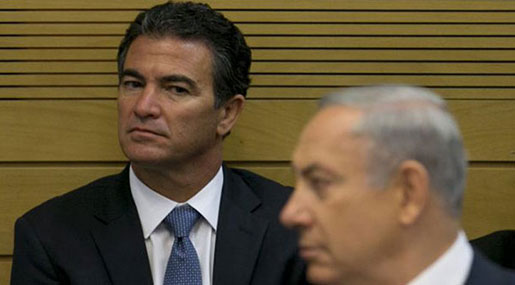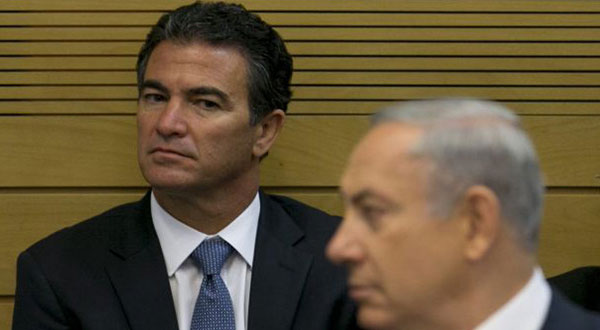
The Mossad Sounds the Alarm: What’s Coming Is Even Worse

Jihad Haidar
‘Israel's' Mossad chief Yossi Cohen summed up the intelligence assessment on developments in the region surrounding ‘Israel' by warning that "the region is not changing in our interest".

The evaluation issued by the head of the agency, whose field of work exceeds the area adjacent to the ‘Israeli' entity, came with abundant details during his security briefing to cabinet ministers. Only a few of those details were made public. But it was sufficient to form a picture of the Mossad's estimation concerning the latest regional developments and the threat to ‘Israel's' national security.
The vocabulary used in Cohen's assessment - "the region is not changing in our interest" - may be limited. But it contains more than one reference to the regional arena, which is the field for these variables as well as its nature since it is running counter to what was planned by Tel Aviv and Washington, evolving into greater threats.
Regarding the arena of variables referred to by the head of the Mossad, ‘Israeli' assessment institutions, especially the intelligence agencies as well as research institutes advising political and security decision-makers used to say that ‘Israel' enjoys a strategic environment with opportunities not seen throughout its history. The most prominent characteristic of this environment is the disappearance of the threat of regular armies. Sometimes that threat was eliminated through political settlements: Egypt in the south and Jordan in the east. Others were sidelined though the wars in Syria and Iraq, which led to a decline in the threat from their armed forces due to their preoccupation with the Takfiri threat.
But the alarm, which has been raised by the head of the Mossad, points to a fundamental change in the readings. The developments being witnessed across Syria and Iraq led to the exhaustion of all gambles and schemes aimed at toppling the Syrian regime and dismantling the bonds of communication between the parties of the axis of resistance - eventually encircling Hezbollah in preparation for its elimination. Instead, the axis of the resistance has achieved victories not only by preventing enemies from realizing their objectives, but also by crystallizing a new reality that paved the way for risks of a new kind [for the ‘Israeli'], expressed by the head of the Mossad.
"'Israel' is identifying a presence not only of Iran and Hezbollah, but also of Shiite forces, that are not Iranian, from all over the world that are making their way to the region," Cohen said.
As for the level of this threat and its place on the ‘Israeli' list of priorities, the head of the Mossad stressed that Tel Aviv's " number one mission is to stop this."
Concerning the change that the Mossad chief mentioned, it comes to culminate the path of field developments in the Syrian arena, in particular, after these developments underwent several stages. As the events began to unfold, ‘Israeli', regional and Western gambits to topple President Assad were at their peak stage, until "Hezbollah's intervention that changed the dynamic of the war". That's according to the last American ambassador in Damascus, Robert Ford, who stressed that "not expecting this [Hezbollah] intervention was the biggest mistake we have made in the Syrian war "(Asharq Al-Awsat, 19/6/2017).
Then came the Russian military intervention, which joined the resistance axis against the Takfiri threat in Syria and the region. This resulted in the liberation and restoration of Aleppo, which radically changed the course of the war. And the scene after Aleppo's liberation is radically different than the one before. A lot of gambles and schemes were taken down. The operation to eliminate Daesh was launched. Following Cohen's August 13 security briefing to the cabinet, Netanyahu outlined the change that ‘Israel' fears.
"In places where the presence of Daesh is decreasing, Iran is working to fill the void," Netanyahu's office quoted Cohen as saying.
With regard to the fact that "the developments are not in ... [‘Israel's] interest", the inherent threats Tel Aviv faces in the new reality and the course that reality is likely to chart, can be summoned up in the following way: The resistance axis remaining connected and coherent will lead to the continuous strengthening of its abilities and development, and in return will support its ability to act as a deterrent force in the face of ‘Israel' and its allies in the region. This certainly translates into new developments for the region. And this prospect continues to push the intelligence services to try to sound the alarm among the political decision-makers, warning them that "what's coming is even worse" and extremely dangerous for ‘Israel.'
Source: Al-Ahed



